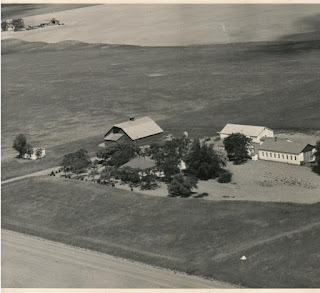Me? White Trash?
Our farm was a 30-minute drive to the city, so one day when I ran out of oatmeal, I drove to our nearby country store. I walked in carrying my baby, and went to the cereal aisle. I heard the bells jingle on the front door as someone else entered.
Voices carried quite well in the little store, and I heard the owner greet the customer.
They began a conversation I’ve never forgotten. After a few pleasantries, the customer declared:
“You wouldn’t believe what those trailer people are doing now.”
The way she said it sounded like they’d discussed the “trailer people” before.
“They brought in a heap of broken concrete—piled it next to their dilapidated shed.”
The concrete got my attention. Needing extra money, we’d removed a concrete driveway for someone. It had been a horrendous job. Instead of throwing away the pieces, we thought we’d re-use it for a cobblestone pathway. Okay, maybe it sounded better than it would eventually look. But right then it was in a huge pile—next to our small shed.
“I have to look down on that junk heap. You should see it. Diapers hanging on the line all the time. Isn’t it just like white trash to live like pigs and then have kids?”
This woman was talking about me. She’d called us white trash. She didn’t even know me—or my hardworking husband. She’d made assumptions based on our trailer home and how we had to live during our years of financial struggle.
Tears ran down my cheeks as I quickly left the store without the oatmeal.
Tears ran down my cheeks as I quickly left the store without the oatmeal.
Later, as I walked up our the dusty dirt road to our place, I looked up at the name-calling woman’s large beautiful home with lush landscaping—including a swimming pool that looked inviting on this hot summer day. She had it all. No, that’s not true. She lacked a heart of love.
I might be young and poor, but I hoped to have a heart that saw people from the inside out—not just where they lived.
As we see angry mobs and rioting, we can look at the outside, but on the inside are people feeling forsaken—that’s a heart problem too.
There are hard hearts and wounded hearts, but to make America strong, we need healthy hearts. And the medicine for hurting hearts? Love.
Love recognizes no barriers. It jumps hurdles, leaps fences, penetrates walls to arrive at its destination full of hope.
Maya Angelou
Maya Angelou







